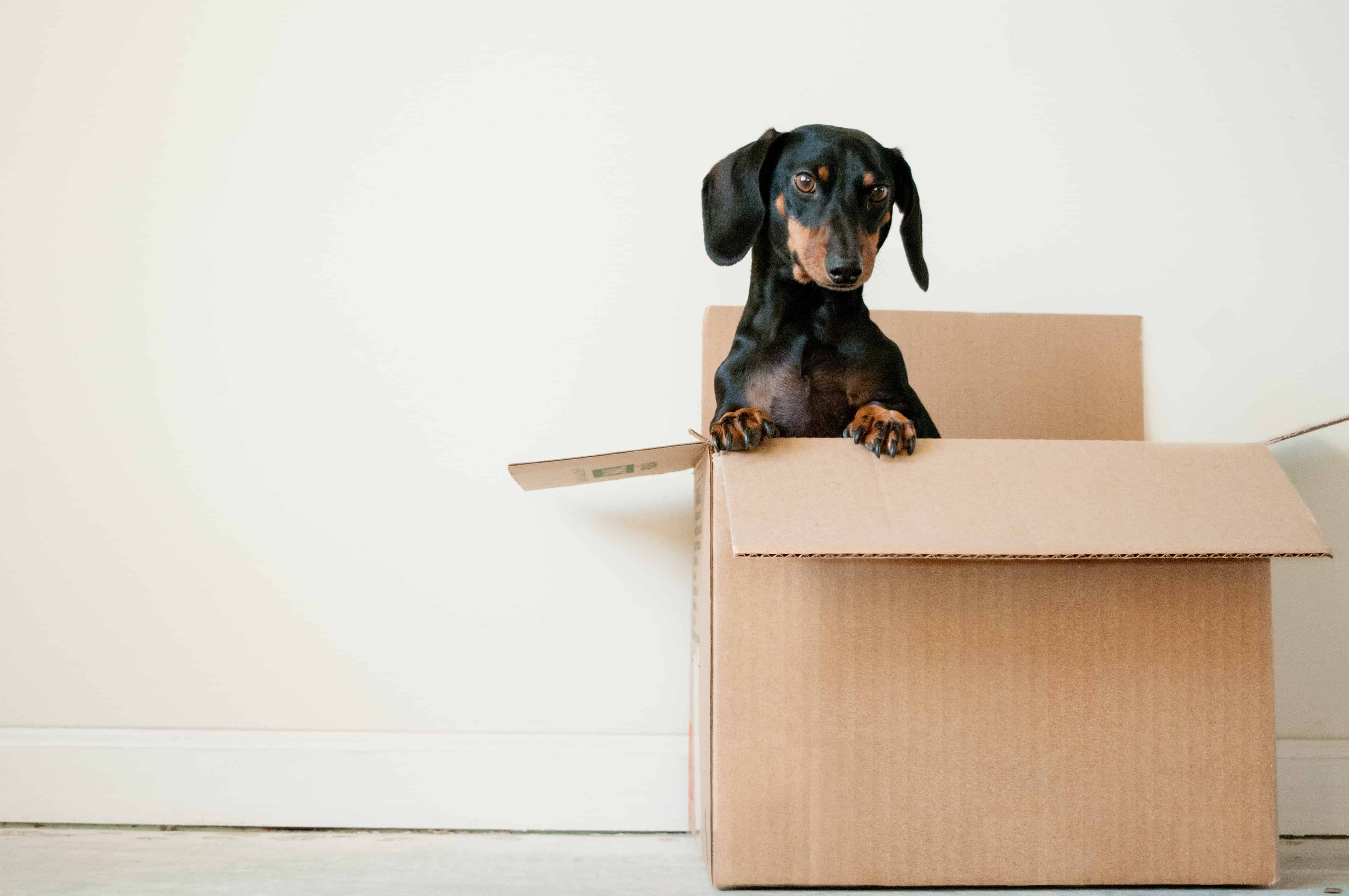Moving Stressing You Out? Try these 11 Self-Care Tips
The psychology of moving is well documented. Moving house is considered one of the most stressful life events by researchers. Even cats and dogs experience moving stress, but unlike humans, we can’t explain to them why it’s happening. (You’ll love your new yard, Fluffy!) No matter how much you love your new home, you might still experience moving anxiety and relocation depression. It is important to practice self-care throughout this transition, so you’ll stress less during your move.

Self-care doesn’t have to be elaborate, glamorous or expensive–sometimes it simply means brushing your teeth, eating nutritious food, calling a friend, or planning in advance, in order to care for your future self. To make this process easier, follow our guide for self-care tips during moving, including a less-stress moving checklist, and aftercare tips to address relocation depression.
Self-Care Tips to Reduce Moving Anxiety
Try these self-care tactics before, during, and after a move:
- Mindfulness: Can you notice your breath? Is it shallow and quick, or deep and slow? Can you bring your awareness to your toes as you wiggle them each individually? If so, you’ve just practiced mindfulness! Mindfulness is the process of noticing the breath and bringing awareness to the present. Practice mindfulness daily for less stress.
- Yoga: Say it with us: You don’t have to be flexible to enjoy yoga. This ancient healing regimen can be adapted for every body, regardless of whether or not you can touch your toes. You might try Tadasana, or mountain pose, to feel powerful. You can try some gentle seated twists, put your legs up the wall, or just go into child’s pose. Yoga helps get out of your head and into your body.

- Exercise: Exercising can help get your mind off an upcoming move. Whether you like to jog, lift weights, or play basketball, exercise warms up your muscles to be ready for the physical activities involved in moving. Focus on working out your legs, arms, and core to help prevent injury if you’ll be doing any heavy lifting on moving day.
- Journaling: Many people enjoy journaling because it helps them think clearly. You might journal before your move, and plan out the logistics of where everything is going to go. You might also take a few minutes to list three things you’re grateful for each day. Try writing positive affirmations like, “I am capable,” “I am hard-working,” or “I’m excited about the future.” It might sound kooky at first, but it can improve your mood and help you cope with moving stress.
- Food and drink: You’re often advised to eat what’s left in your fridge and freezer before a move to avoid food waste. This is sound advice, but don’t feel forced to eat something you don’t enjoy just to get rid of it. Eat nourishing, healthy foods to support your digestion instead, and treat yourself to the occasional pizza or comfort dish. Your body needs energy! Enjoying a cup of coffee or tea is another great ritual. In the time it takes to drink a cup of tea, you can invite yourself to be fully present.
- Ask for help: Moving is usually not a one-person operation. Whether it’s asking a friend to help pack in exchange for pizza, or calling your uncle to borrow his pickup truck, asking for assistance will lighten the load when moving day arrives.
Does Clutter Cause Stress?
For most people, less clutter equals less stress. If you have been in your current home for many years, you probably have lots of extra stuff such as clothes, tupperware, toys, and furniture taking up space and not necessarily “bringing you joy.” There’s no time like the present to embrace your inner Marie Kondo and declutter your closet. If it sounds overwhelming, try setting aside half an hour a day to go through the following item categories:
- Clothes
- Books
- Papers
- Misc. items
- Sentimental
Every piece of extraneous stuff you offload ahead of time will help come moving day. By approaching organization mindfully, and well in advance, you’ll be setting yourself up for success. As for disregarded items, consider holding a garage sale to make some extra cash, or dropping them off at the thrift store for a tax-deductible donation.
Decluttering is a key component of the organization before a move, but it is not the only one. Use a pre-moving checklist to avoid procrastination and plan out an easier move.
Stress-Free Moving Checklist

Two Months in Advance
- Forward medical records and transfer prescriptions: For long-distance and cross-country moves, you will need to find a new doctor and pharmacy. Talk to your current providers and ask that your medical records and prescriptions be forwarded.
- Examine the floor plan of your new home: If you want to be happy with the decor in your new home, you need to know the layout. Now is the time to examine blueprints and measure furniture, so you can visualize where everything will live in the new home.
- Arrange parking for the moving truck: Moving vans take up a lot of space, so make sure the driver will have a secure place to park on moving day.
- Schedule painting and repairs: If you need to paint your new home, make arrangements before your belongings are moved in. Scheduling the job(s) ahead of time will help you avoid stress later.
- Request vacation: You will likely need time off for the move, so ask your boss now, before life gets hectic.
- Complete change of address forms: Make sure to fill in change of address forms and give your new address to friends and relatives.
One Month in Advance
- Take inventory. You will want to keep track of your stuff, so make a list of your possessions. If you prefer visuals, you can take photos on your phone or camera to help remember.
- Downsize and declutter. Hold that pre-moving yard sale, or take your stuff to the local Goodwill. Donate non-perishable food items to the food bank.
- Shop for a great moving company. The right mover can make all the difference, so compare and contrast moving quotes until you find the best fit.
- Gather your documents. From insurance policies to appliance manuals, make sure you have all the documentation you need in your new home. Keep those documents in a safe place, and take them with you on moving day.
- Start packing. If you have not already done so, gather empty boxes and start packing up possessions. Start with infrequently used items and continue packing in the run-up to moving day.
Two Weeks in Advance
- Continue packing and labeling. Pack as much as you can, leaving out only the items you use every day. Label each box with the room it is intended for and a list of contents.
- Hire a dumpster or schedule disposal. Moving out can generate lots of trash, so make sure you are covered. Contact your local trash hauler and arrange for a special pickup. You may also want to rent a dumpster if you have lots to dispose of.
- Make plans for your valuables. If you have jewelry, artwork or other valuables, make sure they are properly insured, and that the movers know about them.
The Week of
- Cats and dogs: Make sure your pets will have a safe place to stay while moving. Leaving pets with the local kennel or a trusted friend will also reduce moving anxiety and help you breathe easier.
- Confirm everything. No matter how many times you have confirmed your moving day plans, one more confirmation won’t hurt. Knowing everything is in place will ease moving anxiety and cause less stress.
- Pack the essentials. Most of your stuff can go in the moving van, but prescription medications, important paperwork and moving day snacks should stay with you. Packing a togo bag ensures you will be ready when the big day arrives.
- Clean your old space. Remember to clean your freshly vacated space. Don’t pack your vacuum and mop just yet.
- Defrost freezers and refrigerators. Once the fridge is empty, defrost those appliances. Make sure appliances are clean and in good repair before leaving for your new home.
Relocation Depression: How to Cope
By now, the anxiety of moving day is over, and depression might be setting in. Relocation depression is common. You’ve likely got hundreds of items to unpack, miss your friends, and are trying to establish yourself in a new city. It’s important to honor the emotions that come up during this disruptive time. If you’re in a funk after moving, try these self-care tips:
- Explore the city. Whether by walk, bike, bus, or car, getting out and exploring is the best way to familiarize yourself with a new place. Walk Score© has great resources for discovering walkable areas in your neighborhood.
- Make new friends: Start by introducing yourself to new neighbors and coworkers, and joining them for social events like happy hours or concerts. Try to approach people with the intention of getting to know them, and ask lots of questions. Dating apps are a great way to meet new people, even if you don’t find a significant other. You may just find a friend!
- Call old friends: Don’t forget to stay in touch with old friends. Just because you moved and won’t see them as often, doesn’t mean you can’t keep those friendships alive until you’re reunited. With social media, there’s no excuse to let good friends slip through the cracks.
- Bringing familiarity into the home. Some people find it comforting to rearrange furniture in a similar way as before, or display beloved objects that remind you of “home.”
- Try something new. Taking up a new hobby can help bolster your identity and build a sense of community. Try signing up for a dance or yoga class; join a club, gym or adult sports league; enjoy the outdoors through hiking; embrace your nerdy side by participating in a game night, or revisit a hobby you loved as a child.
Of course, all the self-care in the world can’t replace a medical professional or therapist. If you are in crisis, call or text the national crisis hotlines.
Moving is stressful for many reasons, and it’s easy to let self-care fall to the wayside, but this is truly the time you need it most. Be gentle with yourself and stick to your self-care routine, whatever that looks like. Whether you are moving into your first home, embarking on a cross-country move while changing jobs, moving into your dream house or moving into retirement, a little self-care can go a long way.
The post Moving Stressing You Out? Try these 11 Self-Care Tips appeared first on Redfin Real-Time.


